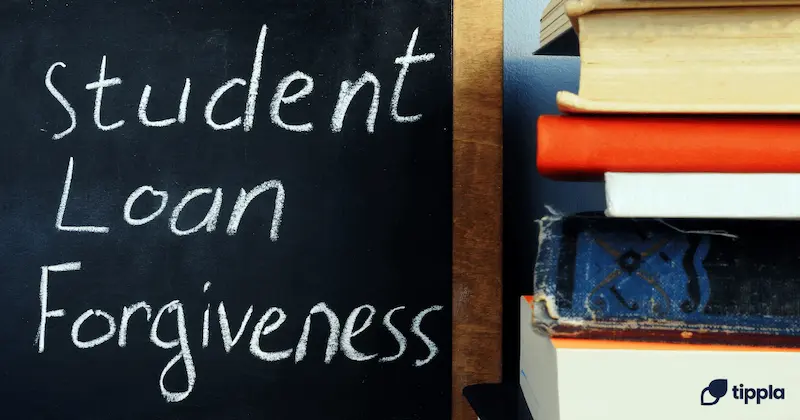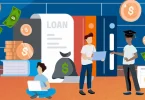Managing student loans can feel intimidating, especially when you’re just starting your career or juggling multiple financial responsibilities. Knowing the best ways to manage student loans is essential to avoid unnecessary debt, reduce stress, and take control of your financial future.
This guide will walk you through practical strategies, tips, and actionable steps to make student loan management easier and more effective.
1. Understand Your Student Loans Fully

Before you can effectively manage your student loans, you need to know exactly what you owe. Many borrowers have multiple loans with different terms, interest rates, and repayment options. Take the time to list all your loans and gather the following information for each:
- Loan type: Is it federal or private? Federal loans often have more flexible repayment options, while private loans may have stricter terms.
- Outstanding balance: Knowing how much you owe is crucial for planning.
- Interest rate: Loans with higher interest rates can grow quickly, so prioritizing them is important.
- Repayment term: Understand how long you have to pay off each loan.
- Monthly payment: This will help you budget effectively.
Having a clear picture of your loans helps you prioritize payments, avoid missing deadlines, and make informed financial decisions.
2. Create a Realistic Budget
A budget is a cornerstone of managing your student loans successfully. Start by tracking all your income and expenses, including rent, groceries, transportation, and entertainment. Then, allocate a portion of your monthly income specifically to loan payments.
Tips for budgeting effectively:
- Prioritize essentials: Ensure you can cover rent, utilities, and food before allocating extra funds to loans.
- Cut unnecessary expenses: Limit dining out, subscriptions, or impulse purchases.
- Automate savings: Set aside even a small amount for emergencies to avoid relying on credit.
- Include student loan payments as non-negotiable: Treat it like any other essential bill.
A realistic budget not only prevents late payments but also helps you pay off loans faster.
3. Explore Income-Driven Repayment Plans
If you have federal student loans, income-driven repayment (IDR) plans can make your monthly payments more manageable. These plans adjust your payment based on your income and family size, which is especially helpful if your salary is low at the start of your career.
Common options include:
- Revised Pay As You Earn (REPAYE)
- Pay As You Earn (PAYE)
- Income-Based Repayment (IBR)
While these plans can extend your repayment period, they reduce monthly stress and prevent loan default. Additionally, after 20–25 years, any remaining balance may be forgiven, although it could be taxable.
4. Make Extra Payments Strategically
Paying just the minimum each month can extend your debt for years. If possible, make extra payments to reduce your principal balance faster.
Strategies for extra payments:
- Target high-interest loans first: This reduces overall interest paid over time.
- Apply bonuses or tax refunds: Any extra money can significantly lower your debt.
- Round up your monthly payment: Even $10–$50 extra per month can make a difference over several years.
Making consistent extra payments can help you become debt-free sooner and save thousands in interest.
You may also like to read this:
The Ultimate Guide on How To Organize Student Loan Payments
14 Simple Student Loan Management Tips To Save Money
How To Pay Off Loans Faster: Easy Steps To Become Debt-Free
Manage Multiple Student Loans Easily: Complete Guide
5. Consider Refinancing or Consolidation
Depending on your financial situation, refinancing or consolidating your loans may simplify repayment or lower interest rates.
- Refinancing: Combines multiple loans into one, ideally with a lower interest rate. Best for borrowers with strong credit and stable income.
- Consolidation: Merges federal loans into a single payment, which simplifies management but may increase total interest paid over the life of the loan.
Before taking this step, carefully evaluate whether it aligns with your long-term goals and whether you lose any federal protections (like IDR or forgiveness programs).
6. Set Up Automatic Payments
Most lenders offer a small interest rate discount if you set up automatic payments. This ensures that you never miss a due date, avoids late fees, and helps you stay disciplined with your repayment schedule.
Even a small 0.25% interest discount can save hundreds of dollars over time. Automation takes the stress out of remembering due dates and keeps you consistent.
7. Take Advantage of Loan Forgiveness Programs

Certain careers and loan types may qualify for student loan forgiveness, meaning you won’t have to pay off your loans entirely. Common programs include:
- Public Service Loan Forgiveness (PSLF): For government or nonprofit employees.
- Teacher Loan Forgiveness: For teachers in low-income schools.
- Income-Driven Forgiveness: Remaining balance forgiven after 20–25 years of consistent payments.
If you work in eligible fields, make sure to submit the required documentation and remain compliant with program rules to avoid losing benefits.
8. Stay Organized and Informed
Student loan rules and repayment options can change over time. Stay proactive by:
- Checking your loan servicer’s website regularly
- Reading emails and letters from your lender
- Following federal student aid updates
Staying informed helps you make timely decisions and take advantage of new programs, rates, or forgiveness opportunities.
9. Avoid Default at All Costs
Defaulting on a student loan has serious consequences, including wage garnishment, credit damage, and tax refund seizures. If you’re struggling to make payments:
- Contact your lender immediately
- Explore deferment or forbearance options
- Consider an income-driven repayment plan
Addressing challenges early prevents long-term financial harm and keeps your credit intact.
10. Seek Professional Guidance
If your student loans feel unmanageable, don’t hesitate to get help. A financial advisor or student loan counselor can provide personalized guidance, helping you:
- Develop a repayment strategy
- Explore forgiveness programs
- Plan your budget effectively
- Reduce stress and avoid mistakes
Professional advice is often worth the investment when it leads to faster repayment and lower overall debt.
Conclusion
Managing student loans is a crucial step toward achieving financial freedom. By understanding your loans, creating a solid budget, exploring repayment options, and staying informed, you can take control of your debt and work toward being student loan-free. Remember, the best ways to manage student loans involve a mix of careful planning, strategic payments, and leveraging available programs. Start today, and your future self will thank you for it.
FAQs
1. How can I pay off student loans faster?
Focus on high-interest loans first and make extra payments whenever possible, such as using bonuses or tax refunds.
2. Should I consolidate or refinance my loans?
Consolidation simplifies federal loans but may increase total interest. Refinancing can lower rates but may remove federal protections.
3. What are income-driven repayment plans?
These plans adjust payments based on your income and family size, making loans more manageable and potentially offering forgiveness after 20–25 years.
4. Can student loans be forgiven?
Yes, programs like PSLF or Teacher Loan Forgiveness forgive loans for qualifying careers in public service, teaching, or healthcare.
5. What happens if I default?
Default can lead to wage garnishment, tax refund seizure, and credit damage. Contact your lender immediately to explore alternatives like deferment or IDR plans.





